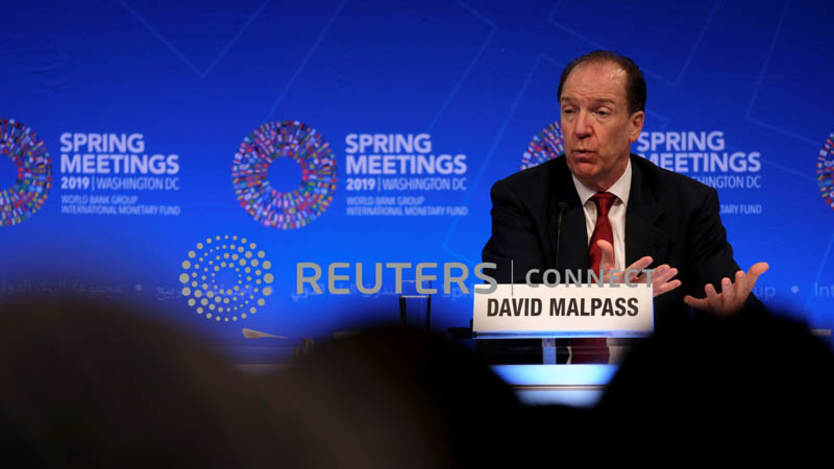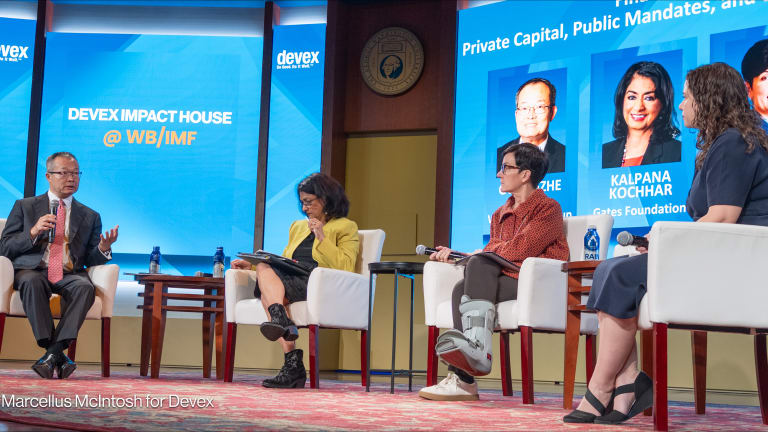
WASHINGTON — World Bank President David Malpass outlined a growing country focus at the bank in a speech on Tuesday where he also called on governments to make structural reforms and to create the building blocks for successful private sectors.
Malpass described his goals for the World Bank Group as helping developing countries “do well.”
David Malpass' first week at the World Bank
As the World Bank Spring Meetings concluded last month, so did Malpass' first week on the job. The new president took pains not to make waves and got a glimpse of the challenges ahead.
“What I would like to see is countries that are true breakthroughs — that often involves strong leadership but also a good systematic reform program to make it attractive for private sector investment,” he said at the annual Global Private Equity Conference in Washington, D.C.
The World Bank Group can help “through a decentralization process that puts more of our people on the ground in developing countries” and by remaining focused on good country programs focused on debt transparency and private sector reforms.
“The bottom line on this work — we're committed to private sector investors, to private sector development and to equity and debt investing as part of the development process,” Malpass said.
Malpass spelled out a list of challenges he sees today, including the demographics in sub-Saharan Africa and the Middle East — which have resulted in growing populations of young people looking for jobs — a build-up of debt and slow growth, particularly in Europe.
“We want to see more debt in countries that can do debt well and use it for building their economies and making themselves stronger. But there needs to be transparency in that field,” he said.
Malpass was in Paris, France, last week discussing debt sustainability and transparency for developing countries and talking about what the developed world and international financial institutions can do to address the debt issue. He spoke about a fundamental misalignment of the incentives for borrowers, lenders, and even international finance institutions that results in discouraging full disclosure about debt deals.
The existing debt management system was not set up for today’s sophisticated instruments, and makes several assumptions — that most investors were market-based, that all of the major bilateral lenders would be members of the Paris Club, that there would be arms-length contracts — which are not the case, he said.
“Some of the challenge is because there is not a clarity of the contracting terms. So the solution in my view is comprehensive transparency of the debt, including implicit guarantees for example, collateral commitments that are being made,” Malpass said, adding that it will help development and improve the investment climate.
The World Bank Group is working to put together all the various instruments into a maximizing-finance-for-development system that will work to coordinate the resources of the institution, and hopefully extend to help coordination with other finance institutions, Malpass said.
“We are committed to working with all of you to create an enabling environment where fundraising and investments can thrive and to use all of our tools to enable win-win investment opportunities,” he said.
Update, May 15, 2019: This article has been updated to clarify that Malpass said countries need good systematic reform.








